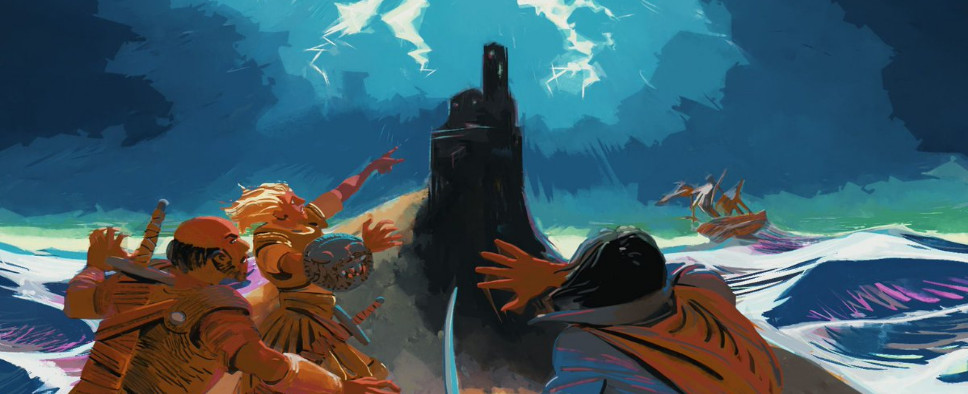SKALD: Against the Black Priory Interview - Page 2
-
Category: InterviewsHits: 11042

Article Index
GB: One of the stretch goals added the Captain class to the game. Could you expand a bit on what we can expect from this intriguing class?
AL: There is a big maritime component in the game so it feels natural to have a maritime class! The way I’m currently envisioning classes we’ll build it around five basic classes: Warrior, rogue, cleric, mage and the skald. Each class then has three subclasses (one of which is the vanilla class).
For now, the captain is a subclass of the rogue and will play into the “scoundrel” trope-space. Think “Han Solo”.
GB: Can we expect naval battles or will the game's ships mostly be used for exploration?
AL: I would certainly love to include maritime combat as well but it’s not on the “need to have” list for now. This might be a feature we add post release. We’ll see.
GB: When talking about the game's classes in one of your developer blogs you mention that you want each class to be “equally playable” and don't want to go overboard with class-exclusive skills or feats. If that's the case, then why do you even need different classes? Why not go with a classless system instead and let the players specialize their characters whichever way they see fit?
AL: That's a good question! I did consider going classless but the argument for classes outweighed the argument against classes. The way the system works now is that classes give you a starting package that lays the ground-work for what your character should be doing (like giving spells to spell-casters). Beyond that, level development is probably going to be based on using points to buy new feats.
What class you play will determine the price of different feats for you (combat feats will be much less expensive to warriors than to mages and so forth). The great thing about this is that it gives me a bunch of knobs to go back and tweak later in regards to feat prices and requirements based on classes. It hopefully will also make it a bit harder to spot the “optimal build” right out of the gate.
Having classes leaves me the opportunity to go in and make the class more or less restrictive and I can even take it out of the game completely if it turns out to be completely redundant, but it would be a lot harder to go the other way.
There’s also an argument to be made for classes being kind of expected in a fantasy RPG and it does give me hooks to hang things on. I can now do scripting to see if a player is a rogue and then let city guard treat her differently than the cleric.
GB: The game's companions are said to have their “private agendas and motivations.” Can you elaborate on this?
AL: SKALD's main campaign will see you create a single character and then recruit the rest as you go. This means that the game will contain a handful of recruitable characters and these should all have some unique content in terms of quests and storylines. The engine can also handle more procedural features as well such as dynamic rivalries and relationships and I would like to include that as well, but this comes down to prioritizing and we’ll see what we have time for.

